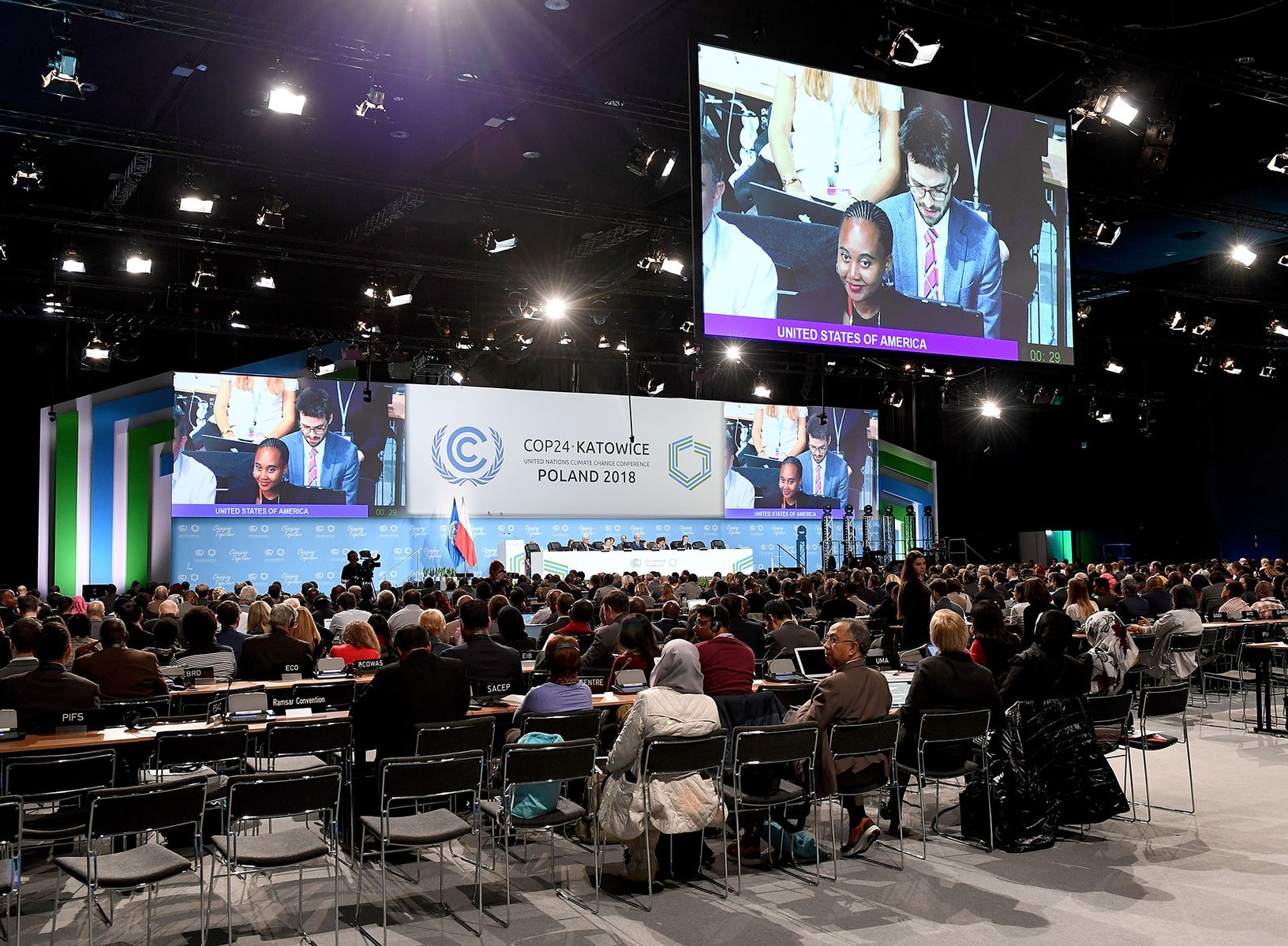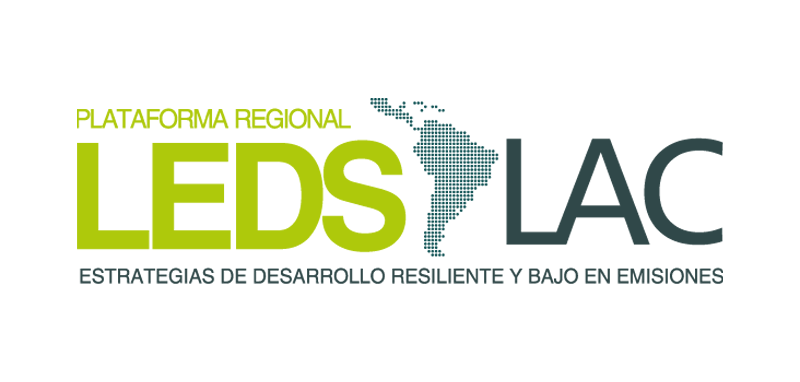 A 24ª Conferência das Partes da Convenção-Quadro das Nações Unidas sobre Mudança do Clima (COP24) teve início em Katowice, na Polônia.
A 24ª Conferência das Partes da Convenção-Quadro das Nações Unidas sobre Mudança do Clima (COP24) teve início em Katowice, na Polônia.
Durante a COP24, a Presidência polonesa planeja concentrar sua atenção em três tópicos principais: Tecnologia, para mostrar que existem soluções modernas e favoráveis ao clima, como a eletromobilidade, que permite o desenvolvimento urbano sustentável, ar limpo e uma oportunidade para empregos modernos. Humano, enfatizando a necessidade de liderar a mudança junto com as pessoas por meio da solidariedade e da transformação justa de regiões e setores industriais. E a natureza, incluindo o gerenciamento florestal multifuncional e sustentável como parte da neutralidade climática e o papel das florestas como sumidouros de gases de efeito estufa, além do apoio a uma visão sinérgica das três principais convenções da ONU sobre o clima, a biodiversidade e a desertificação.
Há vários eventos acontecendo na COP24, nos quais o LEDS GP será anfitrião ou palestrante. Nesta edição especial do boletim informativo, chamamos sua atenção para esses eventos.
Esperamos vê-lo na COP24.
Aprimorando as estruturas de governança para a transparência climática e liberando a ambição em todos os níveis
Data: 3 de dezembro, das 17h às 18h15
Local: Pavilhão da Parceria NDC
Anfitriões: WRI, PNUD, LEDS GP, LEDS LAC, NDC Cluster, GIZ, ICAT
Esse evento destacará como o governo nacional e as ações não estatais e subnacionais se reforçam mutuamente e operam como parte de um único sistema. Os participantes compartilharão experiências de países para melhorar a integração de atores estatais e não estatais no estabelecimento de estruturas de transparência para LEDS e NDCs. O evento também explorará como as Comunidades de Prática regionais podem facilitar o compartilhamento de lições e experiências e o que as iniciativas de capacitação estão fazendo para melhorar a compreensão das ações de mitigação não estatais e subnacionais.
Estratégias para 2050 - Planejamento para um futuro resiliente e próspero
Data: 5 de dezembro, das 13h15 às 14h45
Local: Sala 4 (Narew)
Anfitriões: UNFCCC, Parceria NDC, Plataforma Caminhos 2050, GP LEDS, PNUD, WRI.
Este evento oferecerá uma plataforma para os países que estão liderando o desenvolvimento e a implementação de estratégias de longo prazo para o desenvolvimento de baixas emissões, a fim de demonstrar como elas podem ajudar a promover os objetivos do Acordo de Paris e da Agenda 2030, além de ser um veículo para a ambição climática de curto prazo por meio de NDCs. Os participantes do painel também discutirão o papel que as estratégias de longo prazo precisam desempenhar nos principais momentos internacionais em 2019 e como os atores além do Estado estão apoiando essas estratégias.
Impulsionando a implementação da NDC - o papel das iniciativas e redes globais
Data: 7 de dezembro, das 12 às 13h30
Localização: Pavilhão Alemão
Anfitrião: Programa de Apoio à Implementação do Acordo de Paris (SPA)
Esse evento paralelo reúne atores políticos de alto nível de instituições nacionais, multilaterais e não governamentais para examinar as tendências atuais e as oportunidades emergentes de financiamento e implementação de NDCs cada vez mais ambiciosas. Eles discutirão o valor das iniciativas e redes globais (incluindo a Parceria NDC), o impacto dos programas de grandes doadores (incluindo o Programa de Apoio à NDC do PNUD) e a capacidade de compartilhar e aproveitar a experiência (inclusive por meio dos projetos do Cluster IKI). Os principais tópicos incluem governança, alinhamento, finanças (incluindo o setor privado) e transparência. O formato do evento será um talk show moderado por especialistas que proporcionará um debate crítico, reflexivo e inspirador. O GP da LEDS tem o prazer de participar como palestrante para compartilhar lições sobre o valor das redes ao possibilitar o aprendizado entre pares para promover a implementação da NDC.
Soluções de transporte para uma transição para economias de baixo carbono na África
Data: 8 de dezembro, das 14h30 às 16h
Local: Pavilhão do Banco Africano de Desenvolvimento (AfDB)
Anfitriões: AfDB- PICU 2
Esse evento paralelo apresentará os resultados do estudo sobre mapeamento de emissões de transporte e capacitação em cinco cidades da África, bem como os métodos de coleta de dados. O evento oferecerá uma oportunidade para discussões sobre como a infraestrutura de baixo carbono pode impulsionar o desenvolvimento social e econômico. O LEDS GP tem o prazer de participar desse evento, destacando as oportunidades de soluções de transporte sustentável para a África.[/fusion_text][fusion_separator style_type="single|dashed" top_margin="10px" bottom_margin="20px" sep_color="" border_size="" icon="" icon_circle="" icon_circle_color="" width="" alignment="center" class="" id=""/][fusion_text][fusion_text]
Engajamento civil para a implementação da NDC: comunidades de prática para apoiar intervenções escalonáveis relacionadas à NDC
Data: 10 de dezembro, das 14h30 às 16h
Local: Pavilhão do Banco Africano de Desenvolvimento
Anfitriões: Parceria LEDS da África (AfLP) e Aliança Pan-Africana de Justiça Climática (PACJA)
As comunidades de prática oferecem um meio de compartilhar informações sobre as melhores práticas para criar um ambiente propício à implementação de intervenções relacionadas ao NDC para cumprir os compromissos climáticos internacionais. Este evento destacará a importância das comunidades de prática no cumprimento das metas de eletrificação na África, usando o exemplo da Comunidade de Prática de Minirredes da África. Ele discutirá a viabilidade de usar essas comunidades para planejar, implementar e acelerar as metas escalonáveis relacionadas ao NDC. Esse evento buscará aumentar a conscientização e incentivar a participação dos países africanos nessas comunidades de alto impacto para atingir as metas de desenvolvimento e NDC.
Aprendizagem e colaboração sustentadas entre países por meio de comunidades regionais de prática para a implementação da NDC
Data: 10 de dezembro, das 17h às 18h15
Local: Pavilhão da Parceria NDC
Anfitriões: Governo do Vietnã, LEDS GP, Parceria LEDS Ásia, Parceria NDC
Nesse evento paralelo, o governo do Vietnã apresentará lições recentes sobre como levar adiante suas metas de NDC. O evento oferecerá insights sobre os serviços e recursos disponíveis da Parceria Global LEDS e da Parceria NDC para apoiar os países em desenvolvimento no cumprimento das metas da NDC. Ele também destacará o sucesso das Comunidades de Prática do LEDS GP na promoção do aprendizado entre pares entre os países em desenvolvimento para atingir as metas da NDC. Esse evento contará com representantes ilustres dos setores governamentais e não governamentais de vários países que trabalham com políticas e programas resultantes dessas comunidades.
